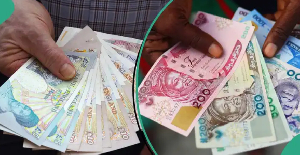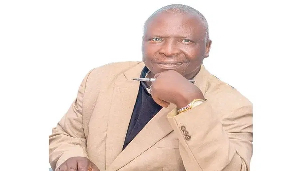Nigeria's National Assembly comprises the Senate and the House of Representatives. While the Senate, which is the upper legislative chamber has 109 members, the House of Representatives, the lower chamber has 360 members.
From the inception of the current democratic rule in Nigeria, the number of females in both chambers has been a major cause of concern for many people, especially those who believe that women should be given 35% in governance.
In 2007, Patricia Olubunmi Etteh who represented Ayedaade/Irewole/Isokan federal constituency of Osun state at the House of Representatives became the speaker.
This is the first time a woman would occupy the highest political office in the country but her reign was short-lived. She was forced to resign less than one year into the office to save her from impeachment.
After Etteh's saga, in 2011, a member of the House of Representatives, who represents Ogbomosho North, South and Orire federal constituency nearly became the speaker of the House but she lost to Aminu Tambuwal, the current governor of Sokoto state.
During the eight National Assembly, there were 14 females elected into the House of Reps but the number decreased by two in the current ninth Assembly.
Speaking on the development, a Reps member Taiwo Olukemi Oluga, who represents Ayedaade/Irewole/Isokan federal constituency of Osun state, said it is unacceptable that women constitute only 19 out of 469 seats of both chambers of the National Assembly.
She further expressed displeasure that there were only 44 women as members of state assemblies nationwide.
Oluga, who is chairman House committee on women in parliament, made this known at a round-table dialogue on legal barriers that inhibit women’s political participation in Nigeria.
She said they were working to ensure more women get into the National Assembly as well as participate more in politics generally.
1. Taiwo Oluga – Ayedaade /Irewole/Isokan (Osun-APC)
2. Tolulope Tiwalola Akande-Sadipe – Oluyole (oyo-APC)
3. Khadija Bukar Abba Ibrahim - Damaturu / Gujba / Gulani /Tarmuwa (Yobe-APC)
4. Boma Goodhead - Akuku Toru / Asari Toru (Rivers-PDP)
5. Beni Butmak Lar - Langtang North / Langtang (Plateau-PDP)
6. Onanuga Adewunmi Oriyomi - Ikenne/Shagamu/Remo North (Ogun-APC))
7. Aishatu Jibril Dukku - Dukku / Nafada (Gombe-APC)
8. Ogunlola Omowumi Olubunmi - Ijero / Ekiti West / Efon (Ekiti-APC)
9. Zainab Gimba - Bama / Ngala / Kala – Balge (Borno-APC)
10. Onuh Onyeche Blessing - Otukpo / Ohimini (Benue-APGA)
11. Lynda Chuba Ikpeazu - Onitsha North / Onitsha South (Anambra-PDP)
12. Nkeiruka C. Onyejeocha - Isuikwuato / Umuneochi (Abia-APC)
Here are the female members of the Senate:
1. Stella Oduah - Anambra North (Anambra -PDP)
2. Rose Oko – Cross River North (Cross River -PDP)
3. Oluremi Tinubu – Lagos Central (Lagos-APC)
4. Aishatu Dairu – Adamawa Central (Adamawa-APC)
5. Uche Ekwunife – Anambra Central (Anambra-PDP)
6. Betty Apiafi – Rivers West (Rivers PDP)
7. Akon Eyakenyi – Akwa-Ibom South (Akwa-Ibom-PDP)
General News of Monday, 21 June 2021
Source: legit.ng













